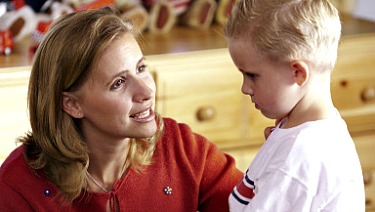 I have been asked by a few folks how they should be, or if they should be, talking with their children about tragic events such as Chancellorsville and Barcelona. This is never an easy subject to discuss but it is one that needs to be discussed. Children can sense when their parents and other adults are under stress and they need to understand why.
I have been asked by a few folks how they should be, or if they should be, talking with their children about tragic events such as Chancellorsville and Barcelona. This is never an easy subject to discuss but it is one that needs to be discussed. Children can sense when their parents and other adults are under stress and they need to understand why.
There is a great article on website Healthy Children that should be of some help.
Here is a little bit of the article.
After any disaster, parents and other adults struggle with what they should say and share with children and what not to say or share with them.
The American Academy of Pediatrics (AAP) encourages parents, teachers, child care providers, and others who work closely with children to filter information about the crisis and present it in a way that their child can accommodate, adjust to, and cope with.
Where to Start – All Ages
No matter what age or developmental stage the child is, parents can start by asking a child what they’ve already heard. Most children will have heard something, no matter how old they are. After you ask them what they’ve heard, ask what questions they have.
Older children, teens, and young adults might ask more questions and may request and benefit more from additional information. But no matter what age the child is, it’s best to keep the dialogue straightforward and direct.
Avoiding Graphic Details & Exposure to Media
In general, it is best to share basic information with children, not graphic details, or unnecessary details about tragic circumstances. Children and adults alike want to be able to understand enough so they know what’s going on. Graphic information and images should be avoided.
Keep young children away from repetitive graphic images and sounds that may appear on television, radio, social media, computers, etc.
With older children, if you do want them to watch the news, record it ahead of time. That allows you to preview it and evaluate its contents before you sit down with them to watch it. Then, as you watch it with them, you can stop, pause, and have a discussion when you need to.
Children will generally follow good advice, but you have to give them some latitude to make decisions about what they’re ready for. You can block them from seeing the newspaper that comes to the door, for example, but not the one on the newsstand. Today, most older children will have access to the news and graphic images through social media and other applications right from their cell phone. You need to be aware of what’s out there and take steps in advance to talk to children about what they might hear or see.
Read the rest Here
